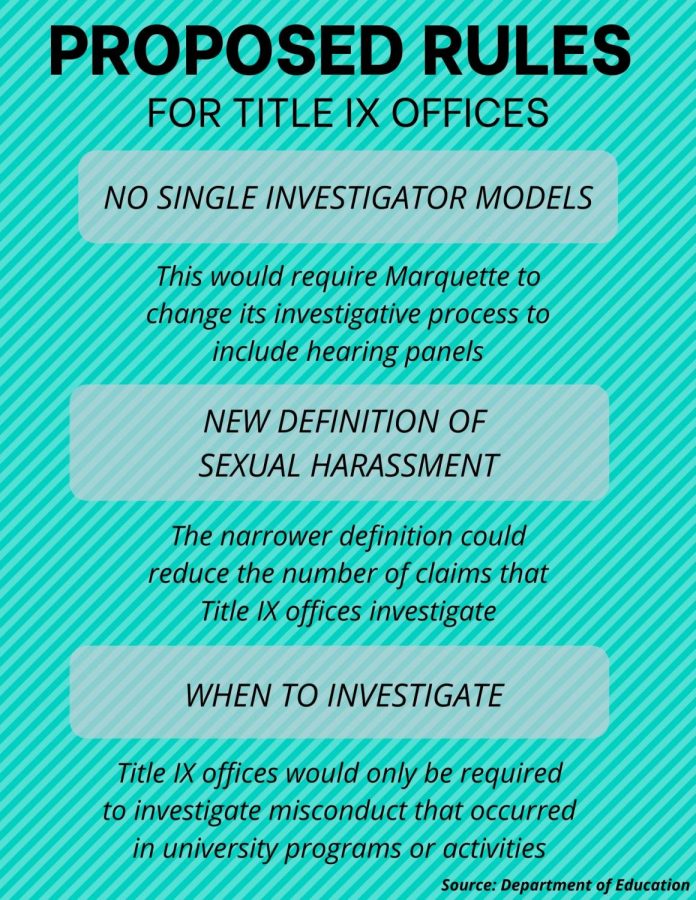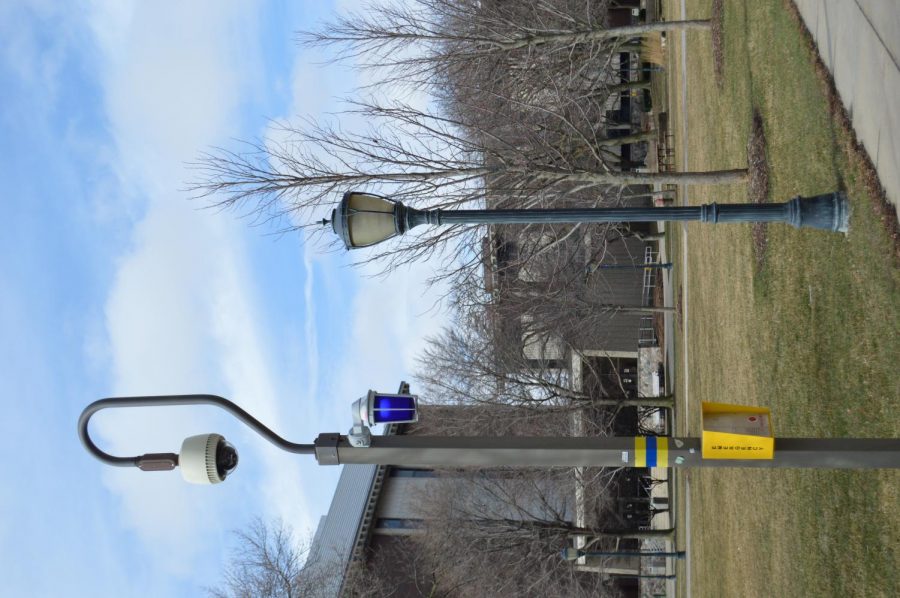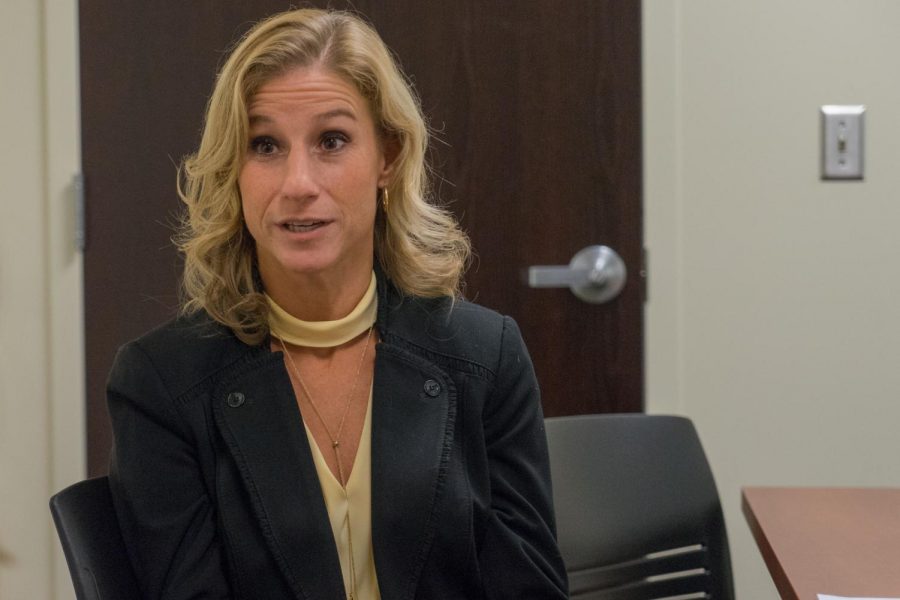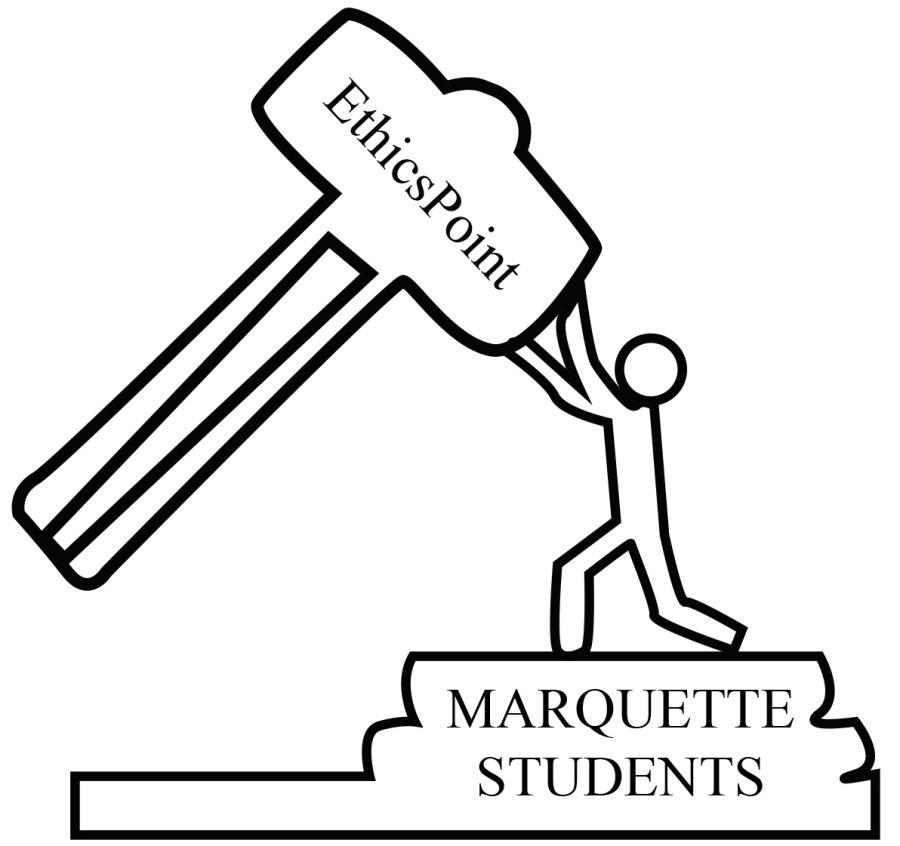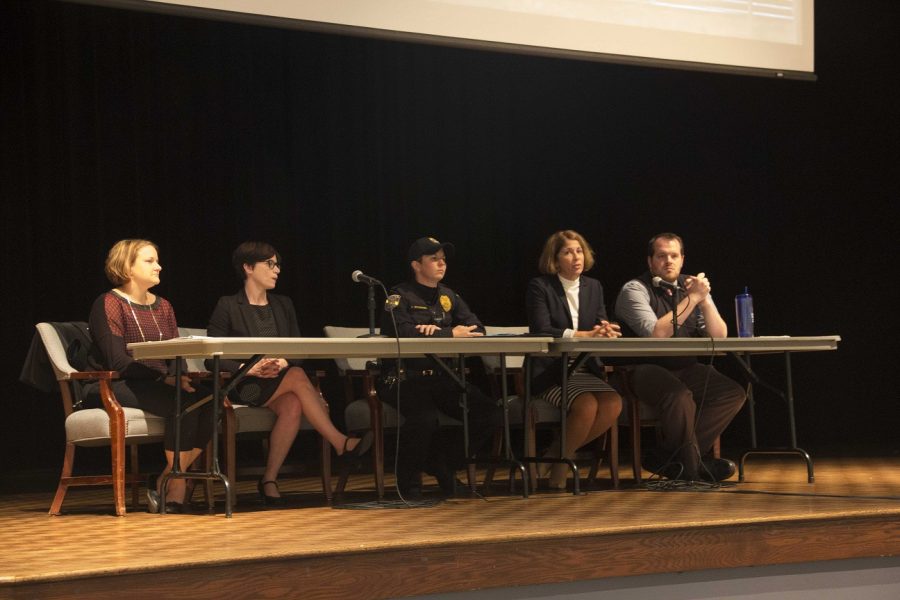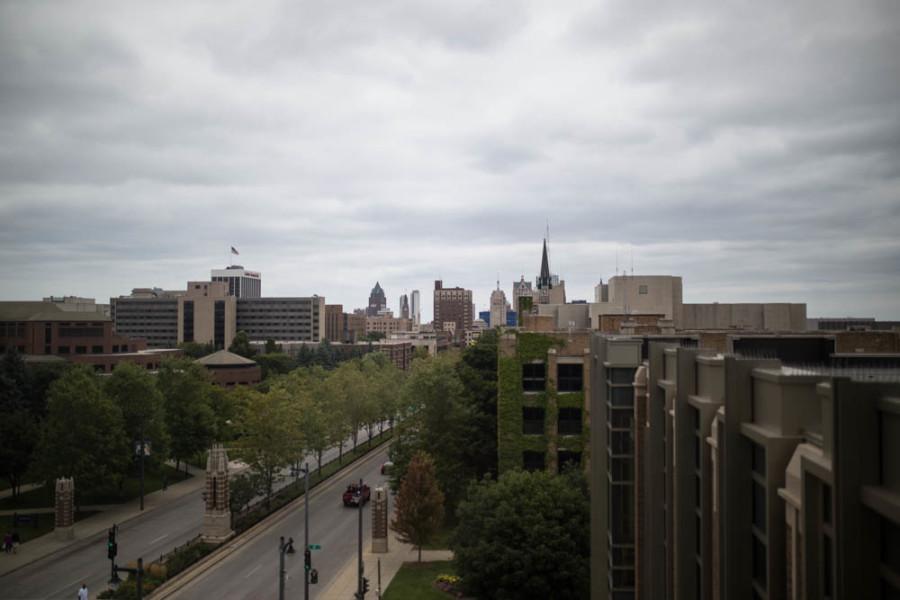Those in need of support can contact Advocacy Services at (414) 288-5244 or advocacy@marquette.edu.
Along with updating its Title IX policy in August, Marquette University has made campus victim advocates a confidential resource for students, faculty and staff. This means they will not report information that is shared with them to the Title IX office.
According to a Sept. 11 university news release, victims will remain in control of all decisions that are made about their healing process and courses of action.
The primary role of the Title IX office is to address incidents of sexual misconduct on campus and to ensure a fair and equitable process to address these incidents, Katy Adler, a victim advocate and Advocacy Coordinator, said.
“In contrast, victim advocates are providing support solely to the victim or survivor and have more flexibility in how this role is provided,” Adler said. “Victim advocates play an important role in helping students determine next steps and get support while they do so.”
Title IX coordinator Kristen Kreple said that in the past, victim advocates were required to report incidents of prohibited conduct.
“This might have made some folks uncomfortable working with them,” Kreple said. “Now, we hope that more folks will work with them to determine how best to move forward on the path towards healing.”
Similarly, Adler said the lack of confidentiality in the past may have deterred students from speaking with a victim advocate and was in some ways a “barrier” to getting advocacy support.
“Now we are able to meet with students and provide support and they can be assured that their information will remain confidential. They can now choose to engage with the Title IX office as they wish, and we can facilitate this contact if they would like,” Adler said.
Kreple said the new Title IX regulations released last spring allow universities more flexibility to decide which employees are required to report incidents to the Title IX office. The university took the opportunity to deem the victim advocates confidential, Kreple said.
This decision was one made by the university to increase access to support and was not dictated by the new Title IX regulations, Adler said.
Jody Jessup-Anger, an associate professor of education, is part of the Advocacy Network.
The Advocacy Network is made up of faculty and staff members specifically trained to provide support and assistance to those who have experiences sexual misconduct.
“I am thrilled that Marquette recently took steps to make their victim advocacy program confidential,” Jessup-Anger said. “By providing an assurance of confidentiality, MU advocates can help students explore their options and resources in the aftermath of sexual violence so that these students can determine the best path forward toward recovery.”
Adler said that after someone experiences a traumatic event like sexual violence, it can be hard to know where to go.
“Victim advocates are here to help,” Adler said. “(They) provide compassionate, nonjudgmental support, and can talk with anyone at any point in their healing, whether the incident happened yesterday or years ago.”
If someone is nervous about sharing their experiences, Adler said they can contact an advocate to talk about options without sharing any information.
Victim advocates provide immediate and ongoing support and assistance for those who’ve experienced sexual assault, relationship violence, stalking or sexual harassment, according to the Advocacy Services website. They are available 24 hours a day, seven days a week and can be contacted via phone or email.
“Our role is to support individuals in the way forward that they choose,” Adler said. “For some, this means reporting to the police or filing a Title IX complaint. For others, it means safety planning and problem solving around concerns. The main goal of advocacy is to give the victim or survivor agency and choice in the path forward, and we explore options and resources to help determine what that path is.”
Marquette has had victim advocates available for students for some time, Adler said. Since 2015, there are two full-time advocates, and thanks to the support of an Aurora Health Care Better Together Fund grant, there are five additional on-call advocates.
Advocacy services provide a number of different kinds of support. This includes referring victims to community support and counseling services, accompanying victims to a hospital or medical provider and providing assistance with housing and academic concerns. They also assist in creating “safety plans,” like obtaining restraining orders or a university Stay Away Directive, which is similar to a restraining order.
Additionally, advocacy services help inform students about the Title IX reporting and complaint process and assist with filing criminal complaints and taking legal action. Throughout the criminal justice or university complaint process, victim advocates will provide aid as well as escort victims to necessary appointments and court proceedings.
This story was written by Alexa Jurado. She can be reached at alexa.jurado@marquette.edu.

